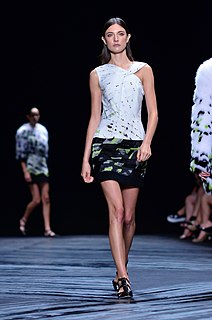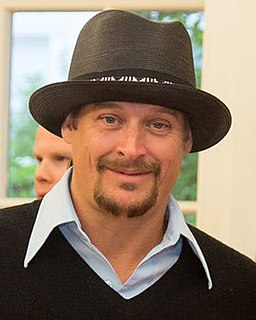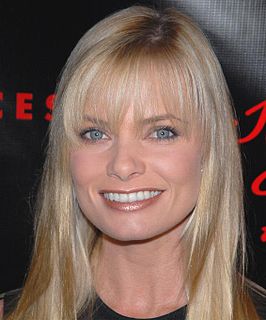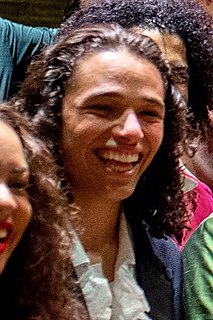A Quote by Jacquelyn Jablonski
I'm actually working on with Autism Speaks. Since my brother's 18, I wanted to work on a program for these older kids. A lot of the schools' special education programs end when the kids are 21, like my brother's school. What is next for these kids? I want him to be constantly active, and not just sitting at home. I want him to be constantly growing and it would be amazing if the funds could go to something like jobs for these kids, or a home where they can be together.
Quote Topics
Related Quotes
I don't follow trends. I'm a trendsetter. I represent all the younger generations; fly kids, creative kids - they look up to me. I got a program that's called ROAR. I go to all high schools everywhere we go, and I talk to all the kids, and I give away 30-35 tickets and passes to the kids doing good in school. Stuff like that means a lot to me.
My son is a great kid and does super well in school. I couldn't be prouder of him. What I tell him is, 'You don't want to just be known for being the son of a rich rock 'n' roll star.' I've seen a lot of kids like that. I want him to be happy, work hard and create his own thing. I tell him, 'You're not gonna be one of these kids up on stage playing with me. If you wanna have hits - write your own. Then we can play together.'
When we talk about something like student loans, what we should be talking about is the fact that every American wants their kids to do better than we have done. If we can get that, the other thing we'd really like is for our kids to be able to come home and raise their kids in the community where we raised them. What unites all of us, no matter where you live in the country, is we want our family to be safe, we want the next generation in our family to be more successful than us, and we would like our family to be close together.
I always hated those fantasy books where, at the end, all the kids had to go home. At the end of a Narnia book, you always got shown the door. Same with The Wizard Of Oz and The Phantom Tollbooth. You get kicked out of your magic land. It's like, "By the way, here's your next surprise: You get to go home!" And the kids are all like, "Yay, we get to go home!" I never bought that. Did anybody buy that?
Kids don't care what party they have, right? They want cake and they want to run around. Nothing else matters. But in this escalation, all the kids want parties like their friends. So, if all the friends have an amazing, expensive party, they all want the same thing. If we all got to scale down as a coordinated effort, all the kids would have been just as happy.
My brother is severely autistic, so when I was a kid I spent a lot of time as a teenager in camps and programs for autistic kids. When I went to McGill as an undergraduate, I figured I'd be a therapist working with these kids. The truth is, and I knew this even back then, I'm just not good at this. I'm too empathic to do this sort of thing.
It's hard sometimes when you're in a regular high school, you just feel like the odd kid out. The great thing about going to an art school [is] it's kind of like it's all the odd kids. It's all the kids that don't fit in at their regular schools, because you're into something and excited about something that other kids really aren't into. When you go to art school, everybody's kind of on the same page.








































